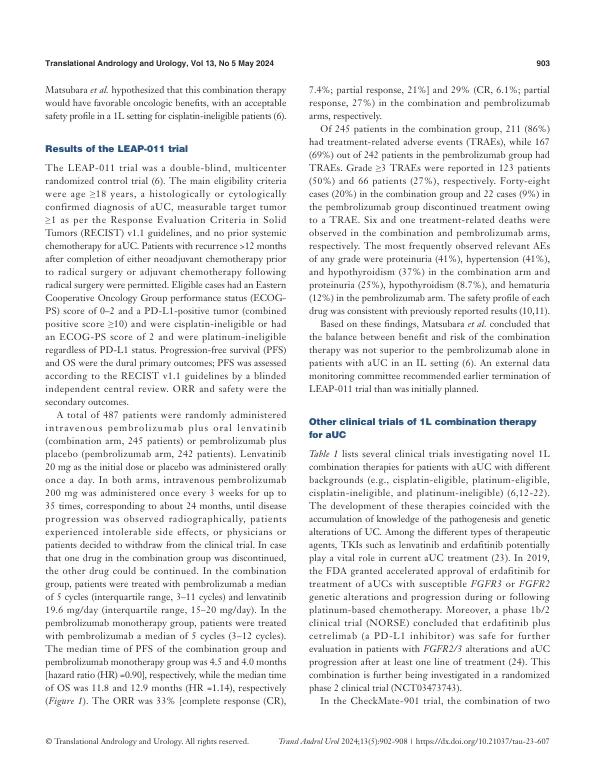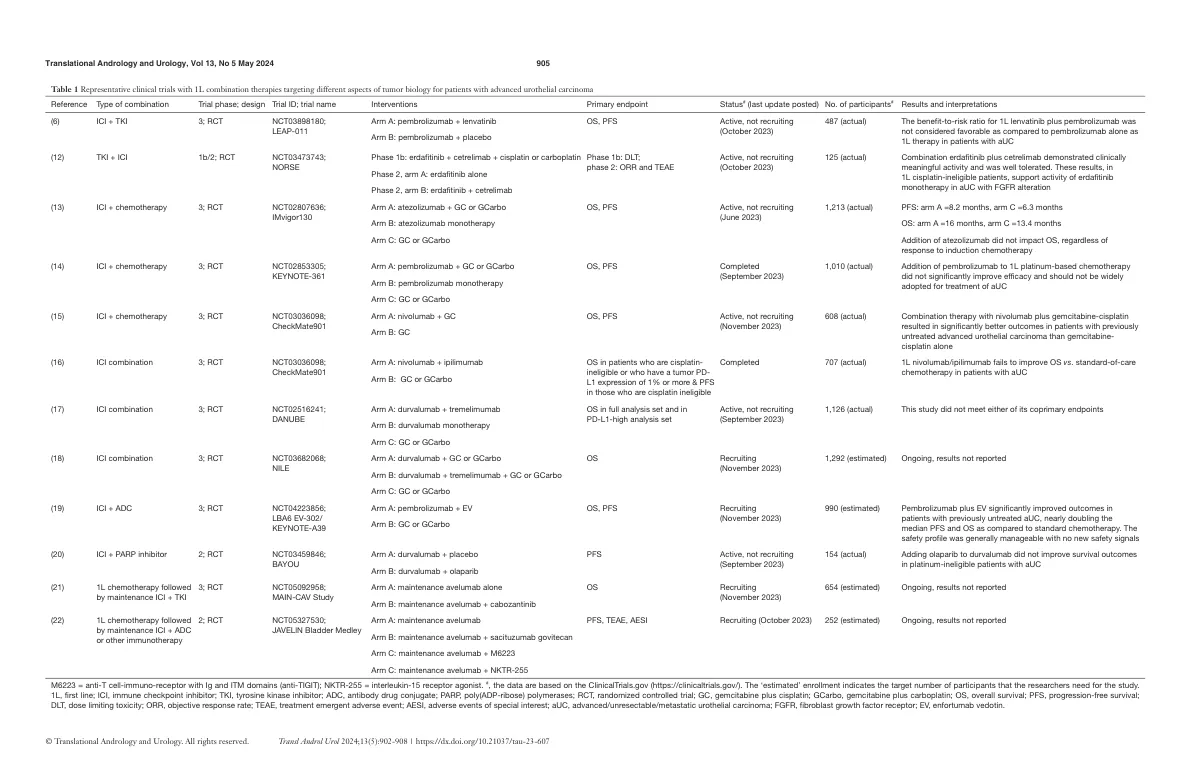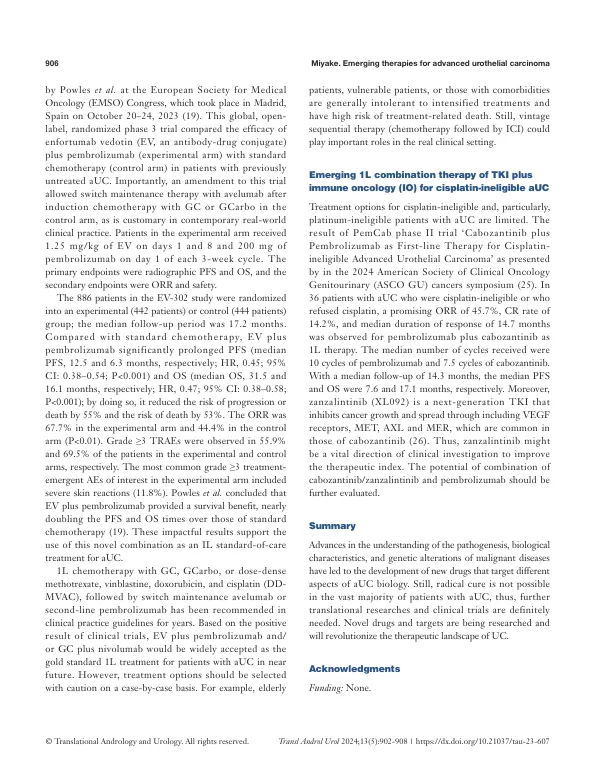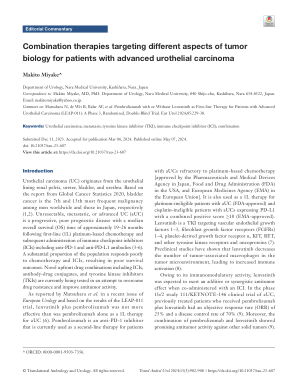Urothelial carcinoma (UC) originates from the urothelial lining renal pelvis, ureter, bladder, and urethra. Based on the report from Global Cancer Statistics 2020, bladder cancer is the 7th and 13th most frequent malignancy among men worldwide and those in Japan, respectively (1,2). Unresectable, metastatic, or advanced UC (aUC) is a progressive, poor prognostic disease with a median overall survival (OS) time of approximately 19–26 months following first-line (1L) platinum-based chemotherapy and subsequent administration of immune checkpoint inhibitors (ICIs) including anti-PD-1 and anti-PD-L1 antibodies (3-6). A substantial proportion of the population responds poorly to chemotherapy and ICIs, resulting in poor survival outcomes. Novel upfront drug combinations including ICIs, antibody-drug conjugates, and tyrosine kinase inhibitors (TKIs) are currently being tested in an attempt to overcome drug resistance and improve antitumor activity.
Combination therapies targeting different aspects of tumor ...



































